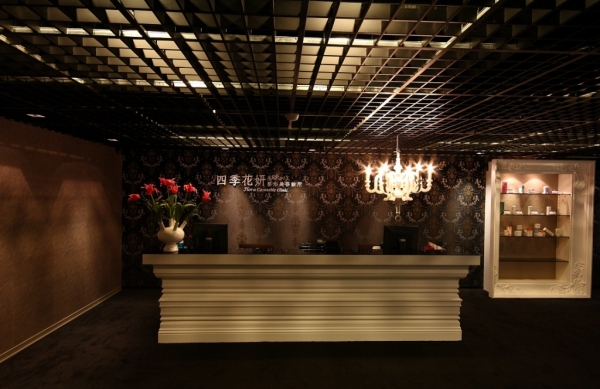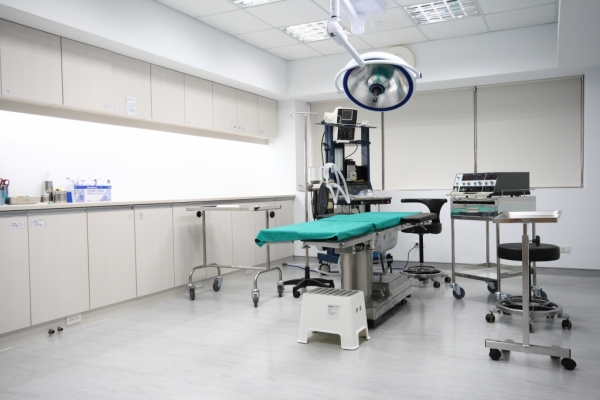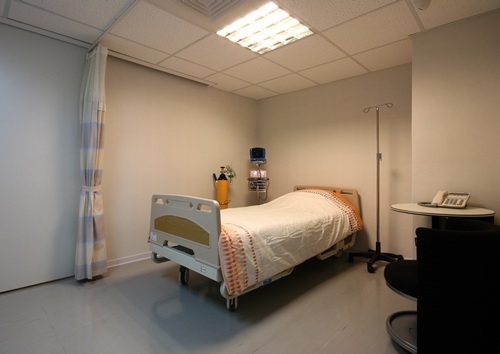Dr. An Po Chung, Plastic Surgeon Performing Fat Transfer In Taiwan
/Is Taiwan gearing up to promote medical tourism?

Name: An Po Chung M.D., MSC
Location: Taipei, Taiwan
Website: 4flower.com.tw
Dr. An Po Chung is a professional member of Taiwan Surgical Society of Specialist, Taiwan Plastic Surgery Medical Association, Physicians Cosmetic Surgery in Taiwan Medical Association specialist Deputy Secretary-General of facial plastic surgery Medical Association and International Cosmetic Surgery Medical Association.
Can you tell us what is it like practicing cosmetic surgery in Taiwan in comparison with what you see in other countries?
From my experience of attending several international conferences, I noticed that cosmetic surgery in Taiwan is not so different from the other countries. However, the patients in Taiwan prefer minimal invasive cosmetic surgery. Some of them have unrealistic high expectations of non-invasive treatment such as filler and Botox.
In Taiwan, as the other countries, you need to be a plastic surgeon then you are qualified to perform plastic surgery. However, there is no specific law in Taiwan to forbid those who are non-plastic surgeons to do plastic surgery. The patients who trust those non-plastic surgeons will go to their clinics for surgery, but most of the people will go to licensed plastic surgeons to do surgeries. Unless some medical problems or lawsuit occurs, those physicians will not be questioned whether they are qualified to do those plastic surgeries or not.

What kind of plastic surgery is most common in Taiwan? How is cosmetic medicine growing? What kind of patients are you seeing?
Nose augmentation, double eyelid surgery, cheek augmentation, jowl line improvement, and liposuction are quite popular in Taiwan.
Also, minimal invasive procedures such as thread lift for eyebrow, jowl line, and facial contour are more and more popular than before.
In the last ten years, cosmetic medicine is growing rapidly and is still growing. The skin tone improvement (whitening), large pore and acne scar are the most often sought out skin treatment. Therefore, 60% of the patients come to my clinic for the problems as mentioned above and the others ask for lower blepharoplasty, breast augmentation, body contouring and face lift.
Are your patients inquiring about nonsurgical options? Has that changed in the last year or more?
If you mean nonsurgical options such as fillers or Botox, I have to say, the most growing period was a few years ago. The market in Taiwan is a stable market without surprising growth. Furthermore, the cost of injection filler and Botox is getting lower because of the competition.
Thermage for skin tightening is also not so popular as before because the cost is not consistent with the effect that patients get.
The microneedle RF system is a new trend in Taiwan and I expect it will be getting popular because the cost is lower and it also seems effective.
Thread lift for jowl line and eyebrow is getting acceptable even though the duration is average between 1-2 years. Some non-invasive procedure for lipolysis such as coolsculpting or PPC injection has their market also.

What kinds of programs, media, advertising, social media and internal programs you use to market to new and existing patients?
To find your customers and where they are is always the question mark in our mind. I have tried different kinds of magazines, newspapers, blog and buying key words on the internet. I noticed that buying key words is the most effective and quick way but very expensive. I also offer useful information on my web site to build good reputation to get patients’ attention.
Actually, half of my patients come to my clinic because their friends and relatives have good experience in my clinic. However, I feel that even though the results of marketing is not always what you expect, it is very important to continue marketing to keep your clinic in peoples’ mind.
As a Taiwanese physician, what insurance to you have to have, or not have, for medical malpractice? What recourse do Taiwanese patients have if they're not happy with an outcome or if a physician makes a mistake?
Over 95% of Taiwanese physicians do not have insurance because the insurance policy is not very useful if problems do happen. Normally, most of the malpractice will not go into the court and will be dissolved before it becomes worse. The doctors will choose to re-do certain treatments if the patients accept that or the patients will get refund with extra money. Normally, it is under the table.

You're pretty involved with the 'fat transfer' procedures. Tell us where you think that fat transfer fits in your practice and where you think fat transfer procedures are going in the future?
Fat transfer for facial contouring is very useful and has excellent results. Face aging process is related to soft tissue loss. Therefore, I use fat transfer to build the basic face shape and then see if simple face lift or just thread lift will be needed later.
Fat is soft and live. Maybe it has the survival rate problem. It is still a good material for soft tissue augmentation. If you are familiar with the lipotransfer procedures then you can predict the results quite accurately. Fat transfer for breast augmentation and hip contour is also a very good tool.
Recently, fat tissue has been proven to contain a lot of stem cells and great potential in medicine and anti-aging field. I believe fat can not only function as a filler in the future but can also play an important role in treating untreatable disease.
How you perform your fat transfer treatments?
As other famous plastic surgeons described, such as Dr. Coleman and Dr. Khouri, I am very careful from the beginning of harvest fat to the end of fat injection.
Fat will be aspirated gently. I use a cannular with small hole to get very small particle of fat.
If I need large amount of fat for breast augmentation, I usually use a closed system for fat collection and purification. Lipokit is the system I am using. I also prefer the cannulars produced by Tulip company.
Usually, my patients will take an hour to discuss the effect of lipotransfer they want and then mark the injection area carefully.
The face will be analysed to show the asymmetrical part of their face because most of the people do not know that the left half of the face is different from the right half of the face. The eyebrow shape, malar bone shape and mandibular angle and curve will be studied throughly. Then the amount of fat needed will be estimated. The patients will be put in sitting position for fat transfer under local anesthesia.
The fat particle harvested is very small. I can inject fat in layers without difficulty. There is no difference in fat processing with the other plastic surgeons, fat harvested will be put in centrifuge for 2700 rpm 3 min.
Following the standardized protocol makes my work quite predictable so the accurate results can be achieved. The survival rate does not bother me much.

What do you think that you do better than most other physicians that helps you to succeed?
I found full communication is very important and do your best with passion. The patients can always feel your effort and that is the key of success. This is the part I believe that I do better than the other doctors. Working with passion is very important. I treat my patients and make them feel I am doing art rather than medical treatment.
What's the best advice you've ever received as a physician?
My teacher told me that before, it is easier to make the pretty prettier, but it is difficult to produce beauty which is not there.
About: Dr. An Po Chung is a MBBS graduate of National Cheng Kung University. He had his surgical residency at the Kaohsiung Veterans General Hospital. After that, he became a surgeon at Jiayi Rong General Hospital. He continued his surgical, general plastic surgery and plastic surgery residencies at the Chang Gung Memorial Hospital. He is a lecturer at the Institute of Technology. he also lectures at the National Institute of Management and Health College. He is also the planter Hospital orthopedic senior director of the Center for U.S. doctors.





